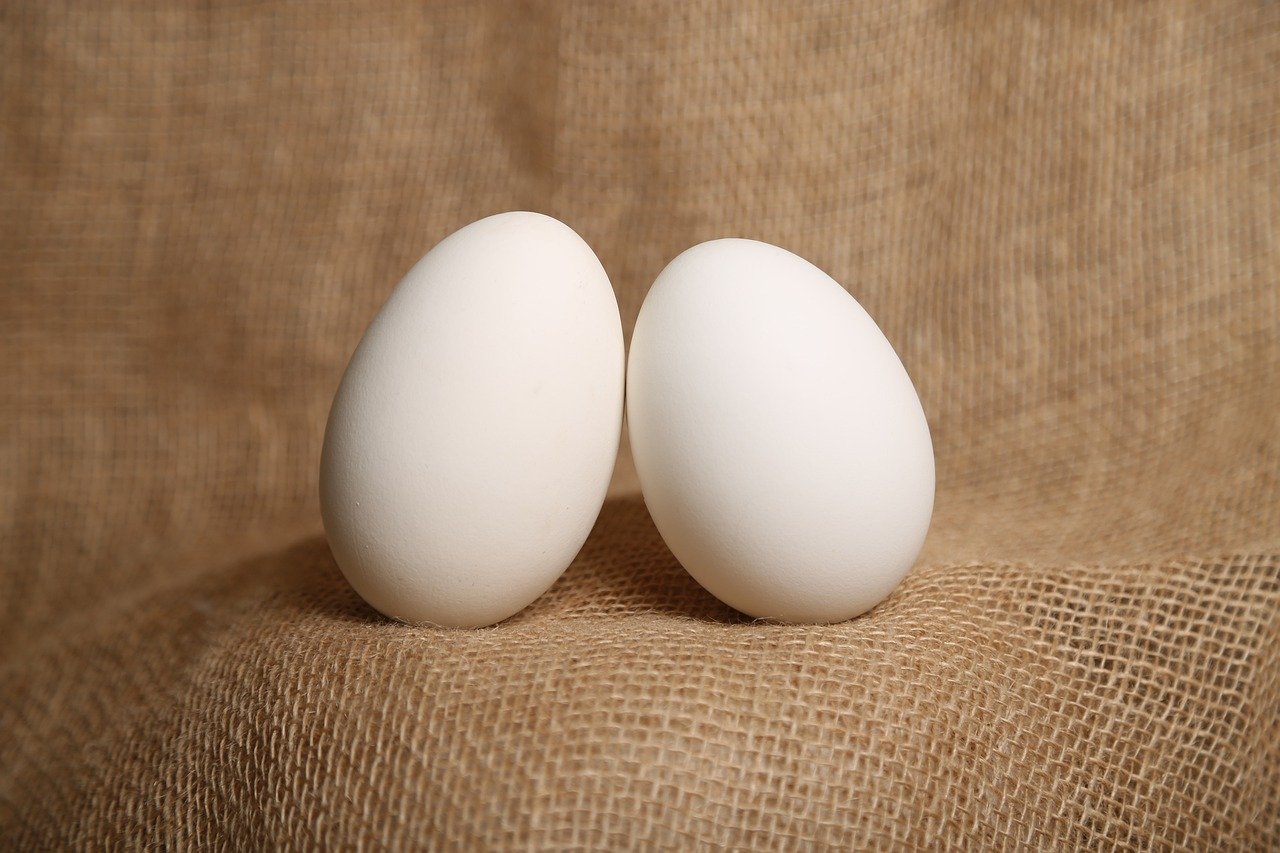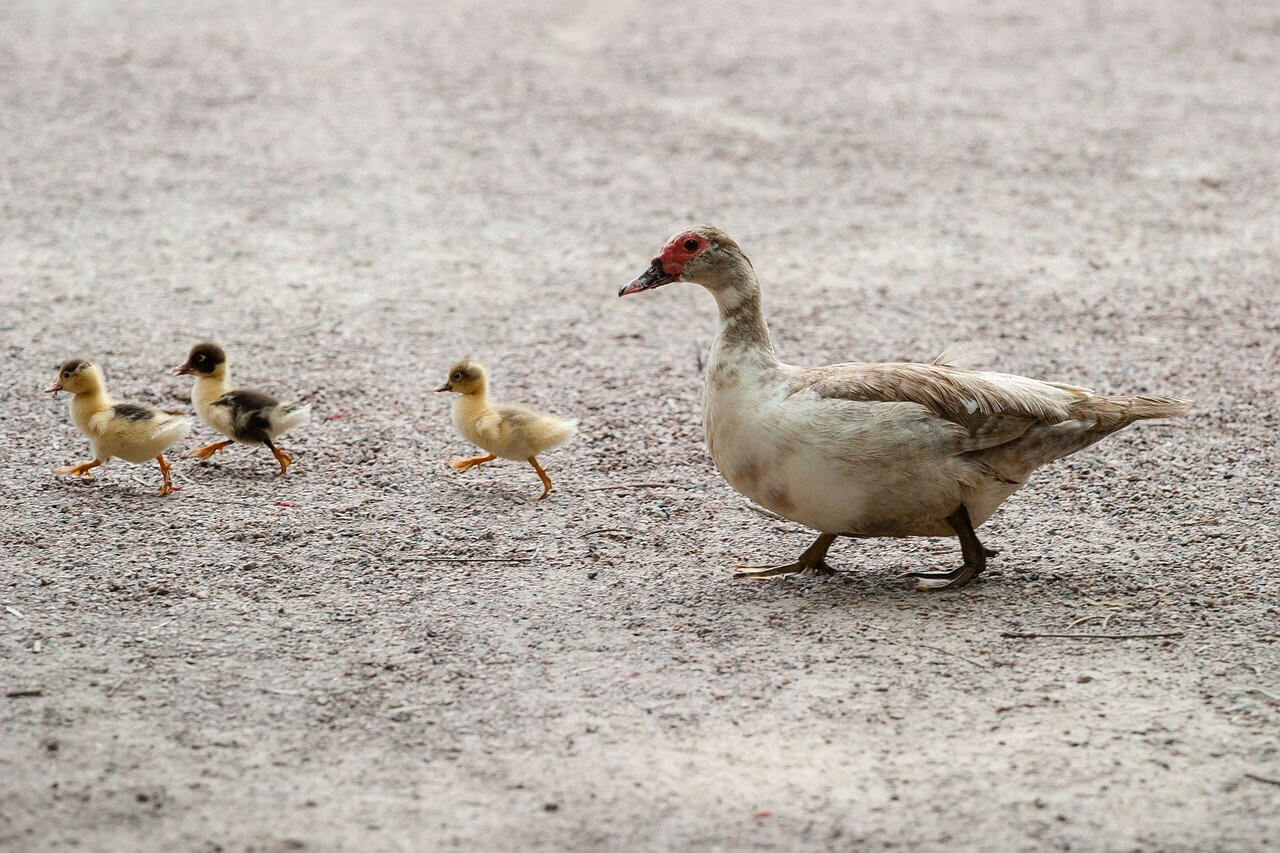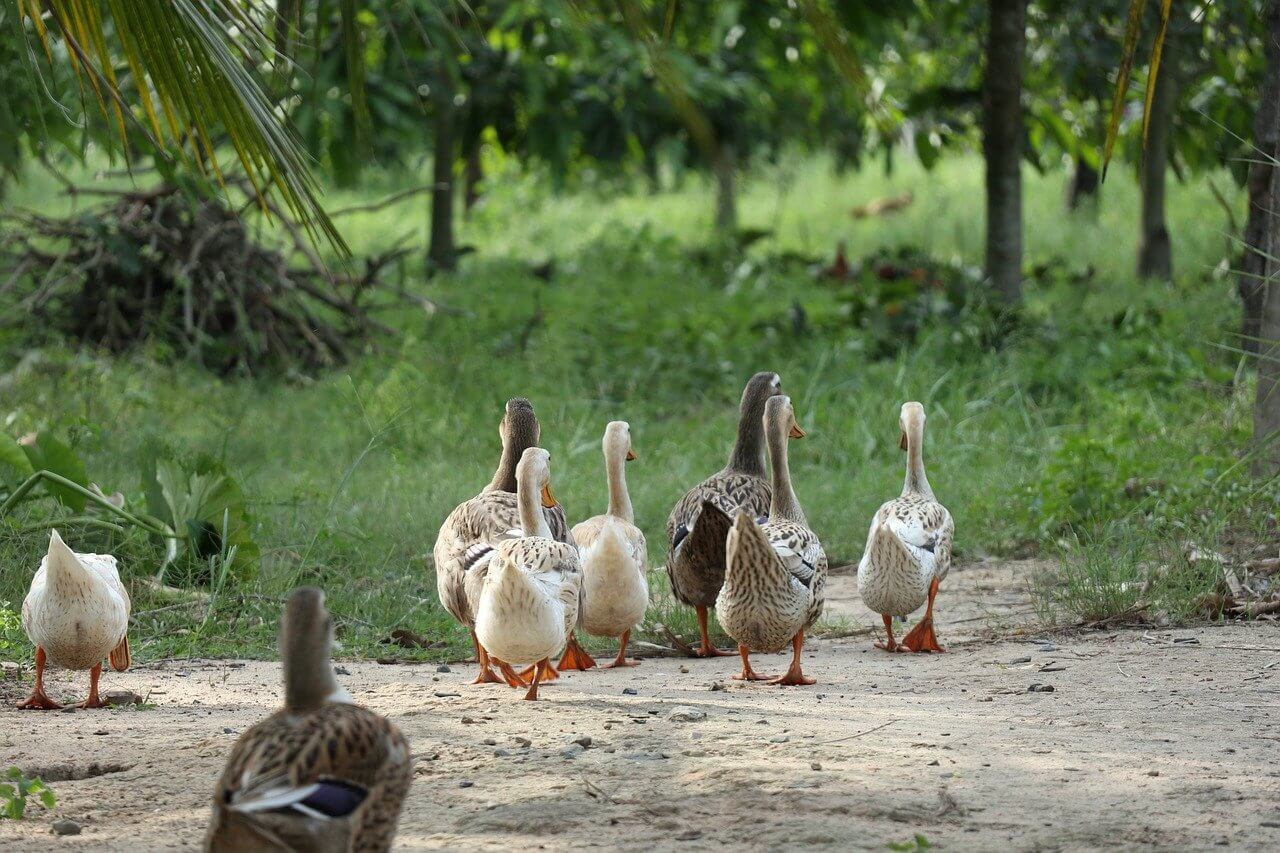When you cook and bake with duck eggs, you can enjoy a richness of flavor and texture and a generosity of portions that just is not possible with any chicken eggs. Duck eggs are superior to chicken eggs in terms of flavor, texture and nutrition thanks to lower water content and greater fat and protein content. In this article we discuss not only how and why you should choose duck eggs over chicken eggs, but also how to store fresh duck eggs; how long do duck eggs last; how to tell if duck eggs are bad, etc. Read on to learn more.
What You'll Learn Today
What Are Duck Eggs Like?

Duck eggs are big and good looking. A single duck egg is usually the equivalent of one-and-a-half chicken eggs. Like chicken eggs, duck eggs can come in a wide variety of colors, depending upon the breed of the duck. You may see duck eggs in shades of:
- Blackish-Green
- Brown
- Cream
- White
- Green
- Black
- Blue
- Gray
Another great thing about duck eggs is that they last longer than chicken eggs because their shells are thicker, and the inner membrane is stronger. This also makes them less likely to break accidentally, and if you do crafts with eggshells (e.g. Christmas ornaments) blown duck eggs are big and strong and easy to work with.
The yolk of a duck egg is large, high and bright orange. The white is nearly transparent. The generous yolk makes duck eggs more nutritious than chicken eggs.
Although they are higher in cholesterol and fat, it’s important to keep in mind, it’s the good cholesterol and natural, nourishing fat.
Additionally, they contain more omega-3 fatty acids than chicken eggs and more protein, so they are an excellent addition to the Paleo diet.
Duck eggs are approximately thirty percent larger than chicken eggs and contain larger amounts of omega-3 fatty acids, proteins and iron. They are superior to chicken eggs for baking because they imbue moisture and an unparalleled richness of flavor.
They are creamy, tasty and nutritious, and if you are not faint of heart, you may enjoy the knowledge that keeping ducks allows you to make good use of all the free protein and nutrition that is available around your property in the form of weeds and garden pests!
Are Duck Eggs Safe?
In terms of safety, duck eggs are just as safe to eat as chicken eggs. When sold commercially, they are subject to the same USDA inspection and regulation as chicken, ostrich and quail eggs.
Even so, before you decide to raise ducks for eggs, invest in a purchased dozen to find out if they agree with you. Some people are allergic to them.
How To Store Fresh Duck Eggs
You should keep duck eggs fresh just as you would keep chicken eggs fresh. Collect them promptly after they are laid. Take them right in to the refrigerator. Wipe them off (don’t wash) and store them in a bowl, carton or other container in your refrigerator.
How Long Do Duck Eggs Last?
When kept consistently cool, duck eggs should stay fresh in your refrigerator for as long as six weeks. Be sure not to wash the eggs before storing as this removes the protective mucus coating from the shell which seals it and keeps air from permeating to the inside of the shell.
How To Spot Rotten Eggs
How To Tell If Duck Eggs Are Bad
Just as with chicken eggs, you can tell if a duck egg has gone bad by checking to see if it floats or sinks. Place eggs in water. If they sink right to the bottom and lie on their sides, they are fine.
If they stand on end, it means some gas has accumulated in one end, and the egg is going bad but could still be used for baking, making dog food, etc. If they float, they are bad and should be tossed in the compost heap.
How Do You Use Duck Eggs?
When it comes to cooking, you can use duck eggs exactly as you would use chicken eggs; although, in some instances you may want to make measurement and timing adjustments since they are larger. For example, if you are boiling duck eggs, extend your normal cooking time by a couple of minutes.
Generally speaking, if a recipe calls for 3 chicken eggs, you can use 2 duck eggs. If it calls for 2 chicken eggs, just use the yolk of one duck egg. If it calls for 1 chicken egg, you may need to double your recipe!
Chicken Egg Vs Duck Egg: A Comparison
Ducks Give You More For Your Money
If you keep ducks to produce eggs for sale, you’ll be happy to know that they sell for quite a bit more than chicken eggs. While it’s possible to buy factory farmed chicken eggs for as little as a dollar or two a dozen, you can easily sell free range duck eggs for between $6 and $12 a dozen.
It’s just as easy to keep ducks as egg layers as it is to keep chickens. As a matter of fact, it may be even easier. Ducks are much hardier than chickens. They are also quieter – especially when you consider roosters! Additionally, ducks are generally friendly. A rooster may become a real problem in terms of attacking people and pets, but drakes are very easy-going.
Furthermore, duck hens typically produce an egg a day all year round. This is a sharp contrast to chicken hens, which tend to slack off egg production in the winter time and go broody (wanting to sit on and hatch eggs rather than lay them) fairly frequently.
Both chickens and ducks enjoy having free range of your property to eat up pests, but ducks cover a lot more territory than chickens because they’ll eat up water pests (e.g. mosquito larvae) as well as terrestrial pests.
The Seven Best Duck Breeds For Egg Laying

If you do want to keep ducks as egg layers, it’s important to choose the right breed. Those that are intended for meat production are not usually excellent layers. Here are the top 7 choices in egg-laying ducks.
1. Khaki Campbell
Khaki Campbell ducks are quiet, unassuming ducks with drab khaki feathers. Their claim to fame is that the hens can be counted on to lay an egg almost every day in almost any climate. If you choose to let the eggs hatch, Khaki Campbell hens are also well-known as doting mothers. These ducks do best when allowed to range free.
2. Pekins
Pekins are excellent all-around ducks. They do not produce eggs as prodigiously as Khaki Campbells, and they are not excellent mothers, but they do double duty as meat producers. If you want ducks for both egg and meat production, large, adaptable, intelligent Pekins are a good choice.
3. Ancona
Ancona ducks lay about the same as Pekins (about 240 eggs annually). Like Pekins, these large, good looking birds are also good meat birds. Rugged and resourceful, Anconas do well running free range. They are excellent foragers, and their large size gives them some protection from attack by predators.
4. Indian Runners
Indian Runners are adaptable to a wide variety of climates. They are large, friendly and smart and do well foraging freely. They were originally bred in China as natural pest control for rice paddies.
They eat large numbers of bugs, snails, amphibians, reptiles and weeds. Indian Runner hens will typically lay about 300 eggs annually.
5. Magpies
Magpies are small, friendly ducks that are specifically bred for egg production. A Magpie hen will lay about 300 pretty, colorful eggs a year. Eggshell colors range from creamy white to various shades of blue and green.
These ducks are a good choice for a small, backyard homestead because they are small in stature and they are quiet. They are not especially friendly, but they are pretty to look at and make a nice addition to your environment.
6. Welsh Harlequins
Welsh Harlequins are an excellent, large heritage breed laying/meat duck. Hens are known for being good setters. They produce very large, bright white eggs about 300 days out of the year. They are a Khaki Campbell cross, so they are adaptable to a wide variety of climates.
7. Buff Orpingtons
Buff Orpingtons are another good choice if you want ducks for both meat and egg production. They are large, friendly, quiet and adaptable and lay up to 250 eggs annually. They get along well with other fowl and can live well in a large coop, free range or a combination of the two keeping styles.
How Hard Is It To Keep Ducks For Eggs?

If you already have chickens, it won’t take much to add ducks. It’s possible for them to use the same type of housing and eat the same type of feed (as long as the feed is not medicated).
All you’ll need to do is add a kiddy pool or pond for your ducks to enjoy, and make sure that they have access to some free range space. Ducks are more in need of being able to ramble and forage than chickens.
If you must choose between ducks and chickens, ducks are a better choice than chickens as egg layers in a cold environment. They can be happy with a small, secure house to keep out predators and a simple kiddy pool (with water changed daily) for swimming and drinking.
How Many Ducks Do You Need?
All birds like to live in flocks, and ducks are no exception. Though some people have taken to keeping solitary ducks as pets, this is never a good idea. A lone duck will become bored and depressed and will be subject to a wide variety of health problems, which may manifest as failure to lay, among other things.
If you can only keep a small flock of ducks, half a dozen is a good number. If you don’t have the space or facilities for this many, you should have at least three.
If you only want eggs and don’t want ducklings, don’t bother with a drake. They are not necessary to egg production, and the hens will not miss having a drake around.
Thanks Nicky wonderful article on Ducks As a child I used to raise Bob White ringneck & Golden pheasant and some ducks and this article brought back wonderful memories!
Thanks James, I’m so happy about that!
Thank you for this information! My son gave me some duck eggs he got from a friend that sells yard eggs. I have had them in the refrigerator for a week and was hesitant to use them in a cheesecake recipe. I am no longer hesitant and am looking forward to seeing the results!
Thank you, please let me know how you liked it!
Hi Nicky,
I really enjoyed your article and I was wondering if you could answer a couple of questions I have.
I have a flock of Pekin ducks and they have begun to mate.
My question is, once they mate how long does it take an egg to get fertilized?
Another question is will pekin ducks brood on their eggs?
Thank you,
Ma’ayan
Thank you for your question.
Pekin drakes and hens should be ready to breed at the age of 7 or 8 months. If you try to breed them too early, or if you wait too long, you may find that the eggs are not fertile.
It’s also important to breed Pekin ducks at the right time of year. Early springtime is best.
Pekins are not especially high layers. They produce about 200 eggs annually. They typically lay their eggs in a safe and quiet place. If you have had another duck lay eggs in a particular setting, your Pekin hen may be attracted to that place.
They are rather indiscriminate layers, and they may lay eggs willy nilly in one place and then another. You can sometimes trick Pekin hens into laying in a particular place by putting a fake egg, a golf ball or something similar in the desired nesting area.
Be sure that the nest box you provide is one that your hen will like. It should be clean, roomy enough, secure and placed in a quiet setting. One easy nest box that you can make for your Pekin hen involves using a large plastic tote.
Take the lid off and cut a hole in one end of the tote that is large enough for the hen to enter and exit easily. Drill a few drainage holes in the bottom of the tote. Fill the bottom of the tote with nesting material, such as vermiculite or peat moss.
Put the lid on the tote and place it in a quiet, safe and secure setting. You may want to weigh the lid down with a brick to prevent the box from being blown about or moved.
Even if your hen lays a clutch of eggs in her new box, you may not be able to count on her to become broody. These types of ducks do not tend to brood as easily as many other types.
Be ready with a plan B. You may need to give the eggs to another duck or to a chicken hen or to incubate them artificially.
Can you provide some journal article on shelf life of duck egg
What sort of granes and plants can I grow to feed ducks. Can they eat leftover green herbs , are they toxic ? If I cut a wing then they will not fly away .
What vitamins will I feed them?
What for lose worms ect . I in Bendigo Australia
My email
lindatassie@gmail. Com
I 64 with chronic arthritis .
🤯🤗🤔🧔🏽♀️👩🏼🎨🦅🧙🏼♀️😇
You can’t depend on the floating test to determine when duck eggs are fresh, duck eggs are much heavier and I have yet to see any rotten duck eggs float after testing over a dozen rotten eggs!
Yonah
I bought a dozen duck eggs that were refrigerated. I didn’t immediately refrigerate them; they stayed out overnight, and I refrigerated them the next day, because I was told once refrigerated, always refrigerated. The chicken eggs I get are never refrigerated, and they sit on our counter for a week or two. Will the float test tell me if the duck eggs are still good or not?